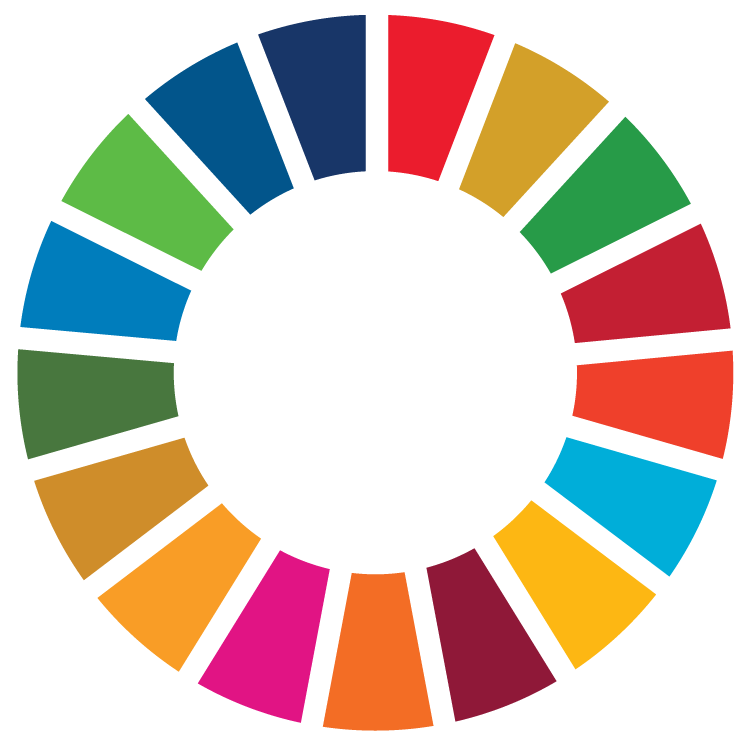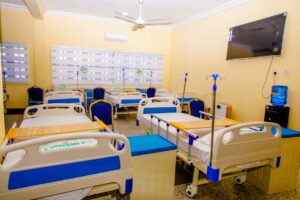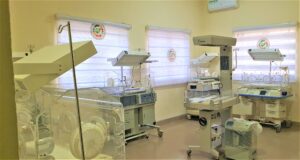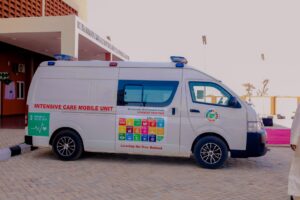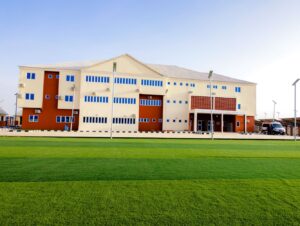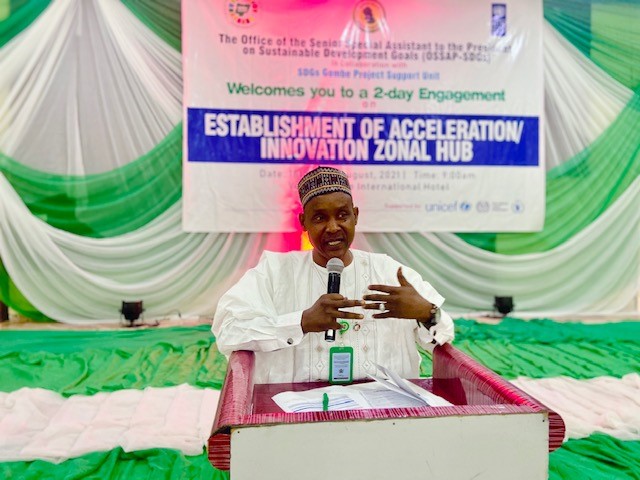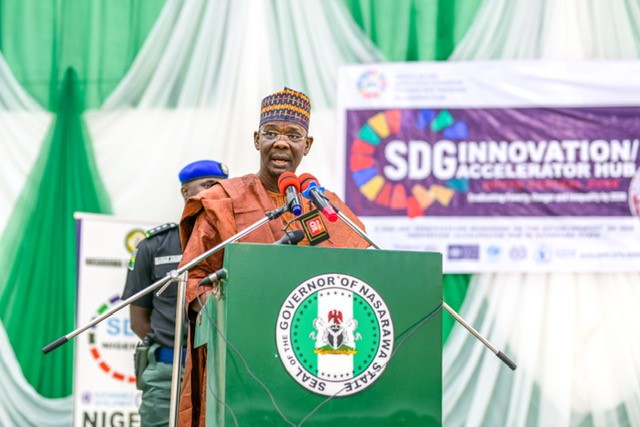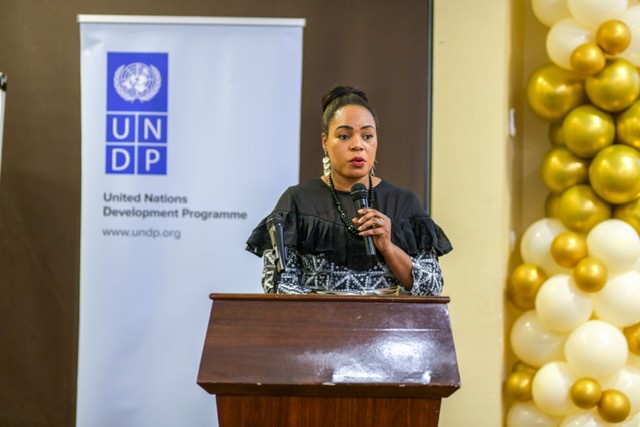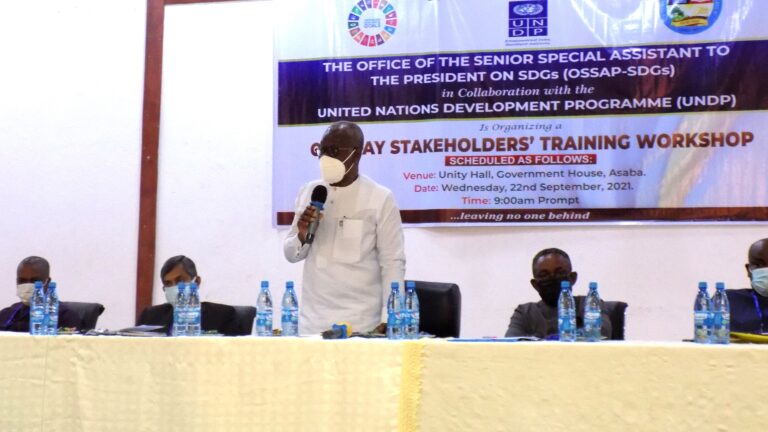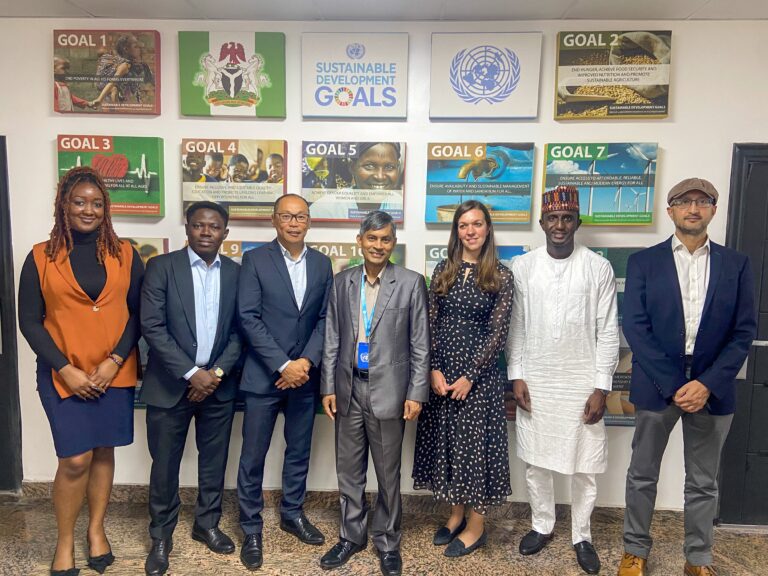Initiatives
Community
Sustainability
Projects
Between 2019 and till date, a record number of projects have been implemented, aimed at providing essential services to accelerate the achievement of the SDGs, by ensuring no Nigerian is left behind.
In the education sector, 8,008 classrooms were constructed and 305 were renovated with furnishing to strengthen basic education across the country.
A total of 4,845 Desktop and Laptop Computers have also been supplied to schools across the country for Information and Communication Technology (ICT) training.
In the health sector, 195 Health Centres, comprising Primary Healthcare Centres (PHC) and Mother and Child Centres (MCC) were constructed, complemented with the supply of 199 Intensive Care and Rural ambulances. About 257 incubators and 7,464 regular and automated hospital beds were supplied across health facilities.
In other cross-cutting sectors, OSSAP-SDGs constructed 66 Vocational and Skills Acquisition Centres; supplied 1,294 transformers; the provision of 19,266 solar-powered streetlights; 300 Housing units for internally displaced persons (IDP) in Borno State; and 925 Solar Boreholes, in addition to several other interventions.
The Support to the States on SDGs-Based Development Plan is an initiative developed in partnership with the United Nations Development Programme (UNDP) to provide technical and financial support to states on the development of SDG-based medium- and long-term plans. The target of this initiative is to have supported all 36 states and the Federal Capital Territory (FCT) by 2030, to align their development policies and plans with the requirements of the SDGs, as outlined by the United Nations. This will ensure states’ annual budgets are funding the implementation of the SDGs at the sub-national level.
A key component of this support is the utilization of the Integrated Sustainable Development Goals (iSDG) model, which plays a crucial role in costing the development plans. The iSDG model is a comprehensive simulation model tool that enables policymakers and planners to assess the financial implications of achieving the SDGs at the state level. It considers various factors, such as population dynamics, economic conditions, and sectoral priorities, to estimate the required investments for sustainable development and resource allocation, allowing states to prioritize their interventions effectively. This ensures that the available resources are utilized efficiently, leading to the maximum impact on sustainable development. Additionally, the model aids in identifying potential funding gaps and exploring innovative financing mechanisms to bridge them.
The support to states on SDGs-Based Development Planning, with its integration of the iSDG model, provides a robust framework for states in Nigeria to align their development policies and plans with the requirements of the SDGs. This initiative is a critical step towards achieving the national and global targets for sustainable development, fostering equitable growth, and improving the well-being of all Nigerians.
States who have so far benefitted from this process include Akwa Ibom, Bauchi, Gombe, Ekiti, Kaduna, Kwara, Kogi, Lagos, Niger, Ondo, Osun, Oyo, Plateau, Sokoto, Yobe and Zamfara states. These states are at various stages of the planning process, while Gombe, Kwara, Osun and Ekiti states have successfully launched their SDG-Based Development Plans.
Support to States on SDGs-Based Development Planning
SDG Innovation Hubs
In collaboration with UNDP, OSSAP-SDGs has completed the consultations and technical assessments of State SDG Offices across the six geo-political zones. The hubs will be positioned as follows: Sokoto (North West Hub), Gombe (North East Hub), Nasarawa (North Central Hub), Enugu (South East Hub), Delta (South South Hub) and Lagos (South West Hub).
The six state-of-the-art Innovation Hubs will help accelerate the implementation of the SDGs at the sub-national level. This will support the decentralization of SDGs coordination, through knowledge and experience sharing among the states.

